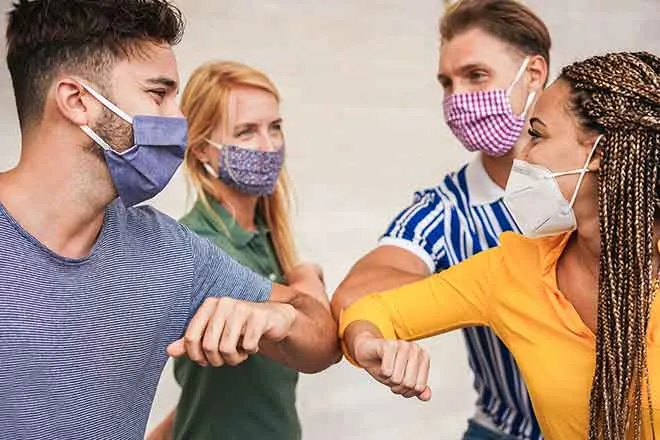
Daily Audio Newscast Afternoon Update - January 2, 2025
© INDU BACHKHETI - iStock-1336427297
News from around the nation.
FBI says no definitive link has been determined between blast at Trump hotel and New Orleans attack; NC turns to a local foundation for long-term Helene recovery; A push for Oregon's right to repair law to include wheelchairs; Women's suffrage adds luster to WY Capitol's historic status.
Transcript
The Public News Service Thursday afternoon update.
I'm Mike Clifford.
Hours after the New Orleans attack, a Las Vegas explosion triggered heightened security around Trump Towers in New York and Chicago.
Tesla CEO Elon Musk is a top advisor to President-elect Donald Trump.
That from NBC News.
The report President Joe Biden said Wednesday, law enforcement and intelligence are investigating whether there's any possible connection between the two incidents.
At the latest news briefing, the FBI agent in charge stated that they have no definitive link between the acts, but also said the probe is in its very early stages.
And the FBI now says they believe the deceased suspect in the Burbank Street attack, 42-year-old Shamsuddin Jabbar from Texas, acted alone, after earlier saying they were hunting for possible accomplices.
Meantime, the NOPD says security for the Sugar Bowl will be beefed up to Super Bowl levels.
The game is slated for 3 p.m. Central time.
It's been just over three months since Hurricane Helene devastated Western North Carolina, leaving communities to rebuild and recover.
North Carolina Community Foundation President Jennifer Talley Whiteside says that rebuilding is just one piece of the puzzle.
Many other critical needs require ongoing attention and support.
There are infrastructure, including roads and bridges and houses that will need to be rebuilt.
We are particularly concerned about mental health issues.
Governor Roy Cooper recently announced that $15.5 million from the NC Disaster Relief Fund will go to the North Carolina Community Foundation to support long-term recovery from Hurricane Helene.
Shantia Hudson reporting.
And Oregon's right to repair law, which increases consumers' ability to repair their own electronics, takes effect this week.
The law requires manufacturers to provide access to replacement parts, tools, manuals, as well as digital keys needed so people can fix their own devices.
Charlie Fisher with the Oregon State Public Interest Research Group helped author the law and says it needs to go further.
That's why, along with disability justice advocates, he's pushing for wheelchairs to be included.
Fisher says the current process for getting wheelchairs fixed is overly complicated and takes months.
Just simple barriers that shouldn't exist are really what we're trying to address in this wheelchair right to repair law.
And it just seems like common sense.
I'm Isabel Charlay.
Next to Wyoming, where the state capitol building has been a national historic landmark since 1987.
Last month, the Department of the Interior updated the designation with a new context, women's suffrage.
When Wyoming joined the union in 1890, local leaders brought women's suffrage with it.
Karen Meister-Emerick with the League of Women Voters of Cheyenne said there were national attempts to block that.
And that was a big controversy nationally.
And the governor said, well, we'll wait 100 years if you don't let our women come in voting.
So very different from other states.
Wyoming, the 44th state to join the union, coincidentally ranks 44th in the nation for the proportion of women currently in the state legislature.
This is public news service.
A new law just signed by New York Governor Kathy Hochul takes effect this week to penalize polluters for emissions.
The Climate Change Superfund Act puts a fine on the largest contributors to greenhouse gas emissions between 2000 and 2018, specifically those responsible for more than 1 billion tons of global greenhouse gas emissions.
The collected money will be put into a special fund to pay for climate change resilience measures starting in 2028.
Rich Schrader with the Natural Resources Defense Council says this will greatly benefit New York State.
Each budget would be placed into the state budget to do work like upgrading roads and bridges that have been damaged and do work in terms of installing new water systems.
Part of the money would go into things like, 'cause we're having hotter summers or hotter springs, really, how to get better air conditioning in public housing, but also in public schools.
He notes this doesn't account for projects funded by federal dollars.
The law faced opposition from oil and gas companies that threatened to raise prices statewide if it were enacted.
Reports show each region faces millions of dollars in climate costs, totaling more than $2 billion.
I'm Edwin J. Vieira.
And in the new year, college applicants in Minnesota will look a little different.
They will no longer feature an initial question about a person's criminal history.
A new state law that just took effect prohibits Minnesota's public and private colleges and universities from asking about an applicant's criminal past on the initial forums they fill out.
That's unless it's for programs like law enforcement.
DFL Senator Claire Umu Verbatim sponsored the bill.
She says by boosting access to higher ed, they're giving these populations an outlet to reconcile with their past and chart a new course.
It's about giving people an opportunity to explain their stories and their situations and not putting them in a position where they don't even want to try.
Research shows nearly two thirds of those who disclosed felony convictions did not wind up submitting their application.
Amid these efforts across the US, some schools still express concern about public safety, but Verbatim says Minnesota's law strikes a good balance and gives schools the opportunity to follow up before a student is enrolled.
I'm Mike Moen reporting.
Finally, no secret, consumers are unhappy with increasing food prices and many blame inflation.
At the same time, natural disasters have a direct link to grocery costs.
Climb spokesperson Mike Stromberg says the effects of floods, hurricanes, drought, and extreme heat have a nationwide and global impact.
The price of oranges and the price of orange juice have both steadily increased in recent years due to declining production of Florida caused by large hurricanes.
Grain prices are through the roof in critical agricultural regions like the Midwest.
It starts with drought.
It affects a huge portion of agriculture in that region.
That has an after effect at the grocery store in terms of your grocery prices.
I'm Terry Dee reporting.
This is Mike Clifford for Public News Service, member and listener supporter.
Hear us on radio stations big and small, your favorite podcast platform, find our trust indicators at publicnewsservice.org.
















